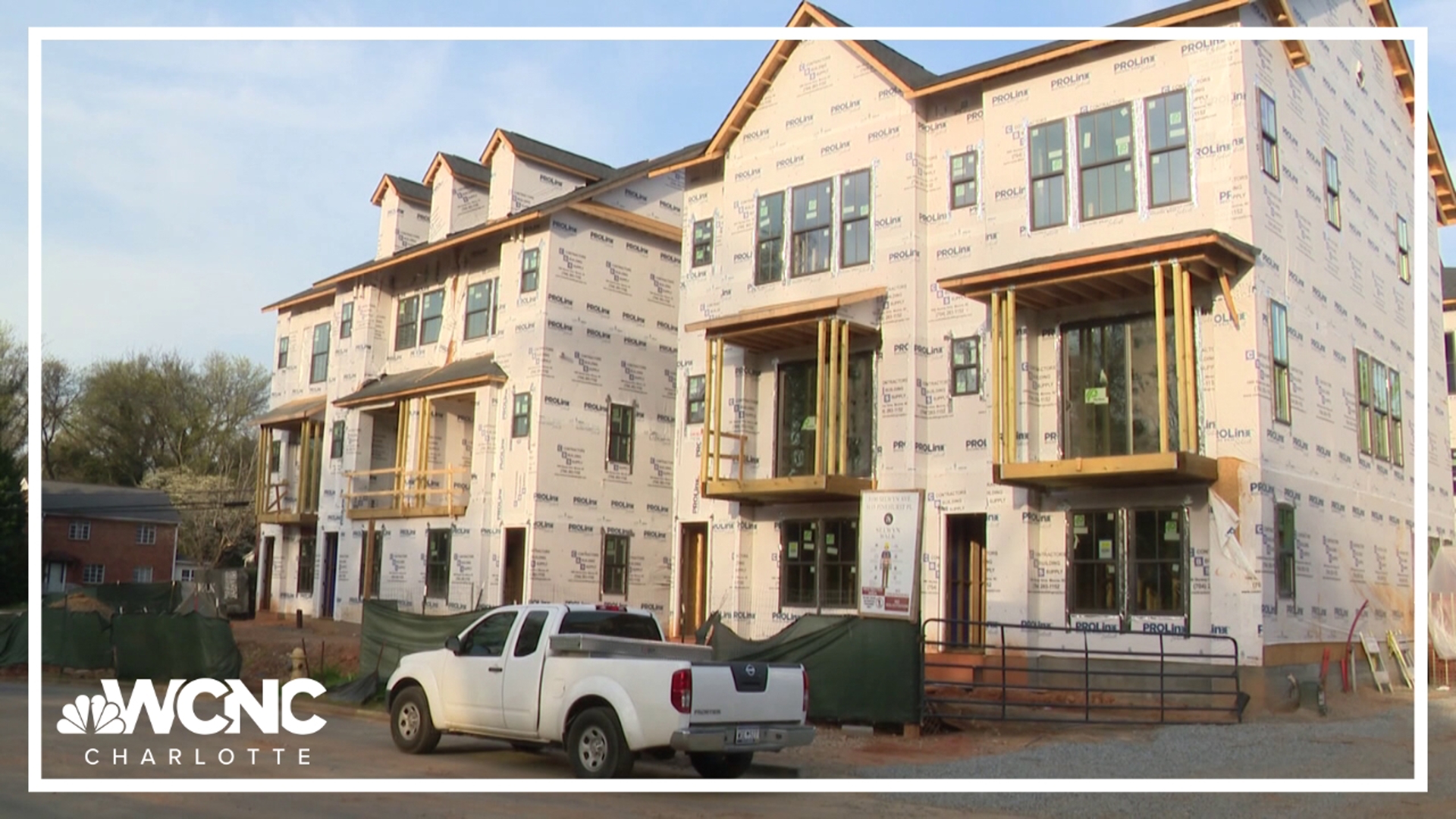CHARLOTTE, N.C. — Charlotte city leaders are exploring ways to reduce barriers to housing development in the city, aiming to address the ongoing shortage of affordable homes.
On Monday, city staff members proposed several modifications to Charlotte's zoning code after receiving feedback from developers about the challenges they face in building new housing.
The proposed changes come in response to ongoing efforts to increase housing supply, focusing on making it easier and less expensive for developers to navigate the city's zoning processes. The goal is to encourage higher-density housing in more areas to help alleviate the housing crisis.
Charlotte’s Unified Development Ordinance (UDO), enacted last year, details the regulations and guidance for construction and development. The UDO was designed to promote higher-density housing in more parts of the city. Staff members believe their latest proposed changes will further support those efforts.
“We’ve been trying to get really creative about affordable housing,” Alyson Craig, Director of Charlotte Planning, Design & Development, said during Monday's committee meeting.
Councilman Ed Driggs, chair of the Transportation, Planning and Development Committee, emphasized the difficulties developers face when working with the city.
“You’ll hear from developers, it’s really hard dealing with the city, it’s expensive, and so on. So, what can we do to smooth the path towards the creation of housing?” Driggs said.
One way the proposed changes aim to make developing affordable housing more accessible is to allow places of worship and schools to build housing on their campuses without needing the city council's approval. This would allow organizations to bypass the rezoning process, saving time and money.
Another proposal under discussion is the potential to allow developers to convert office spaces into residential buildings.
“We’re trying to identify every possibility of partnering with people in order to create more housing and more affordable housing,” Driggs said.
The city is also looking at the possibility of allowing duplexes, triplexes, and quadruplexes in more areas that already have high-density housing. Staff members noted that the current UDO regulations prevent this type of housing in some zoning districts where they think it would be a good fit.
“A big question for us is the extent to which we relax some of the requirements we have in our ordinances in order to facilitate development,” Driggs noted.
The next steps for these proposals include a vote by the full city council on whether to allow changes to the zoning rules for duplexes, triplexes, and quadruplexes.
The other proposals for office buildings, churches, and schools will require more time in committee before being presented to the council for a vote.
Contact Julia Kauffman at jkauffman@wcnc.com and follow her on Facebook, X and Instagram.

